Five Fits With: Trap Music Pioneer Jeezy

“I’m a Renaissance man,” says Jeezy, citing his diverse origins as the source. He grew up in Japan and Hawaii before moving back to the United States mainland. To call him a rapper would be reductive, though you might know him for his seminal contributions to rap’s pantheon and the wider trap genre. The latter is synonymous with Atlanta—and Jeezy himself, for that matter—where he moved after his parents divorced. Entrepreneur, cultural icon, actor, songwriter, writer, record executive, and producer—Jeezy, born Jay Wayne Jenkins, is all of those things and more.
“I learned how to eat sushi in Japan so my chopstick game is a bad one. I also mastered survival because I was thrown back into culturally what's known as the hood,” he tells me. “I think you get the best of both worlds—book smart and street smart.”
I have vivid memories of listening “Soul Survivor” for the entirety of summer 2005, well before I came to know and love trap. Now, 20 years later, Jeezy is doing a special black-tie only tour with a symphony to perform and celebrate the album that monster track came from, Let’s Get It: Thug Motivation 101. Below, Jeezy and I discuss how he got into rap, making the most of life’s twists, his first truly expensive clothing purchase, and plenty more.
Fit One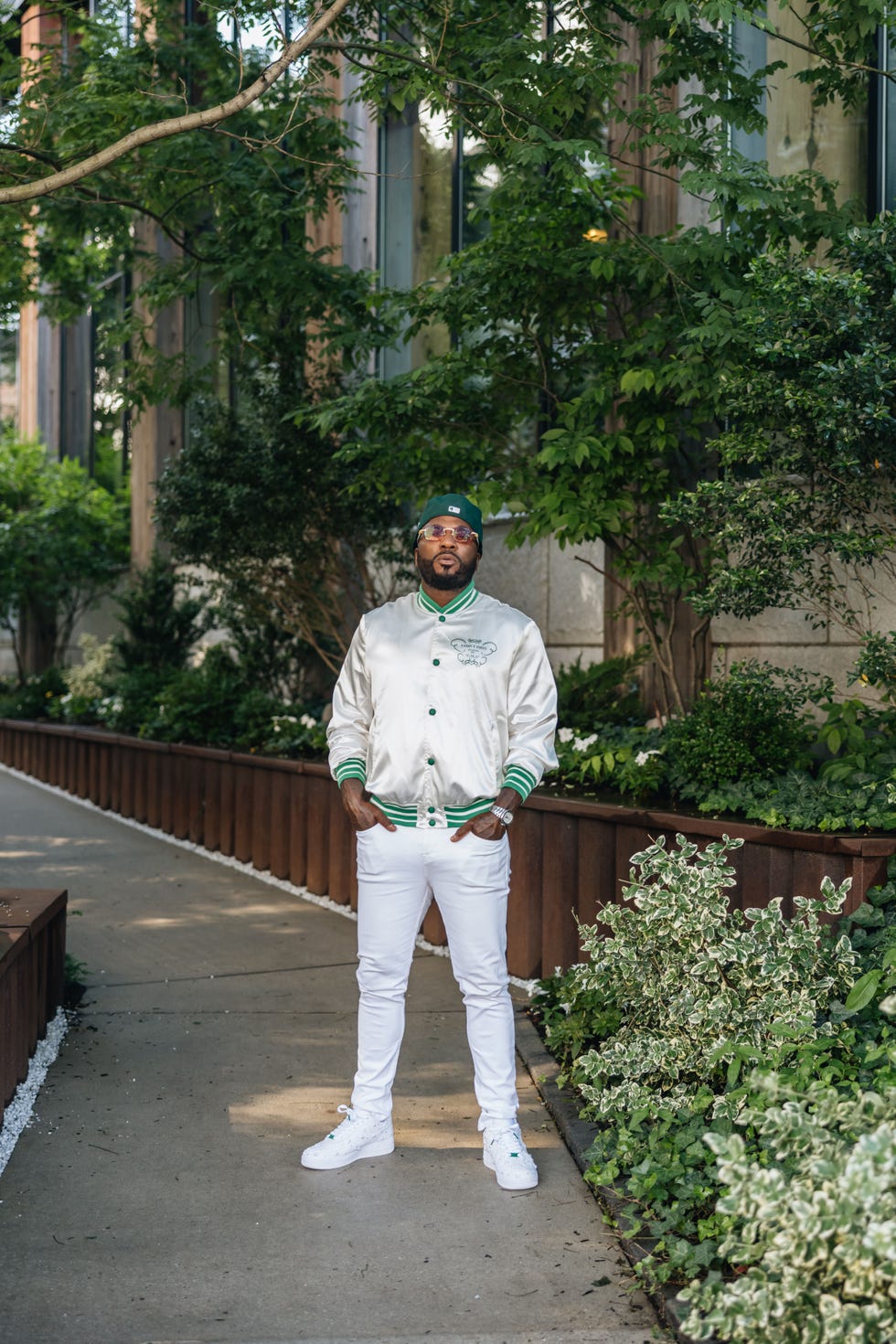
How did you first start rapping, and did you think you can make a career of it?
I didn't really start rapping, man. I had a love for music, always listened to it. Music was my teacher because it's how I learned. It’s the same way I listen to podcasts now. And the guys that were the CEOs of these record labels—the Birdmans, the Master Ps, the Jay-Zs, all these guys—those were the first real sets of entrepreneurs I saw. Initially I started off as a CEO, and I signed people and put money up and that whole thing. But I ran into an instance where most of my artists were locked away, incarcerated, or dead. I was stuck with this studio and all this equipment and no artists. Money was getting tight because I had already put a lot of money into the label, so one of my guys suggested I do it myself because I was the one that was living the life anyway. It was mostly rapping about what I was living. I was reluctant, but I fell into it. It took about a decade to figure it out. I didn't wake up like, "I'm going to be a rapper," or anything like that.
You're an author, you're an entrepreneur, you're still making music. What advice would you offer to Esquire readers who are feeling maybe stagnant in their career?
Whether you fail or succeed, it's all data. You never know what path that's going to take you on. I started off as a CEO. When that didn't work, I had to pivot into being an artist. But look how it worked out for me. I started as an artist, but I am a writer, so I pivoted into writing books and now I have a New York Times bestseller. Just do it. You don't have to have it all figured out. Once you do it, I'm quite sure if it doesn't work, it's going to lead you somewhere else. And if it doesn't lead you to somewhere else, you'll have the data so the next thing you do, you have more information.
Fit Two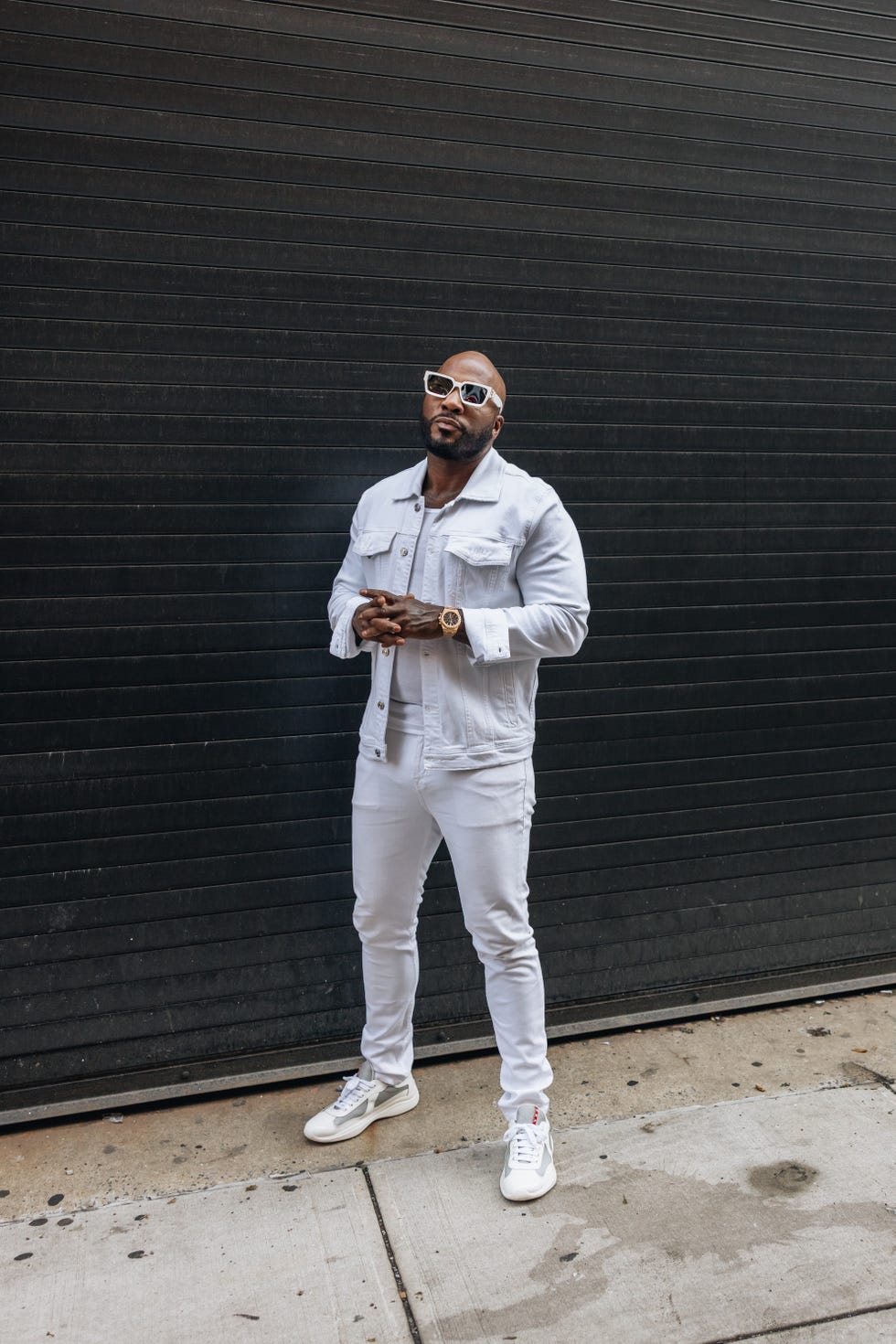
What was special about Thug Motivation 101 for you? Were you aware of the cultural impact that it would have?
They say you have your whole life to do your first album. I would say yes and no. Yes, because I knew how much I put into it. I was under the impression that I was going to prison, so I just wanted to be heard. I put everything I had into that album. When you're in it, you're only doing the best that you can do. You don't know whether it's going to have a sustaining power to be talked about 20 years later. I try to do everything I do in a timeless fashion, but I didn't realize that the music would still hold the position it holds in the culture now. The only albums I ever heard like that were The Chronic or All Eyez on Me or Reasonable Doubt, so I didn't put it in the gamut with those albums at all then I was doing it. I just did it, you know what I'm saying?
Tell me about your upcoming black-tie symphonic tour. Why did you decide to celebrate Thug Motivation 101 this way?
Like I said, you have all your life to do your first album, but when I did that album, I was in a survivor's mind state. Every day I was just trying to stay alive and stay out of prison. But now, 20 years later, I'm obviously not the same person. I've elevated, and I would hope that the people that have been supporting me throughout these two decades have elevated as well. I'm all about introducing things to the culture, and I say the culture as a whole. Everybody doesn’t get the chance to experience an orchestra show, so I figured let's celebrate this album by bringing the orchestra show to them with some of the best people that I know that do it. Shout out to DJ A, shout out to DJ Drama, Adam Blackstone, Derrick Hodges, and the Color of Noize Orchestra. But not only that, it’s to celebrate these people who have been supporting me as well—the people that come to the shows, because obviously if you're coming to the show, you're not in the same place you were 20 years ago either, so you celebrate your evolution as well. This is a celebration of our growth, our resilience, and a celebration of life. Now we're not living from survival. We're living from abundance. I don't mean that at a monetary level. We're full, healthy, grown people who have good friends and great hobbies, and good energy. This is a different world. So, putting on a tux or a dress isn't to celebrate just this project, it's to celebrate you as well.
Fit Three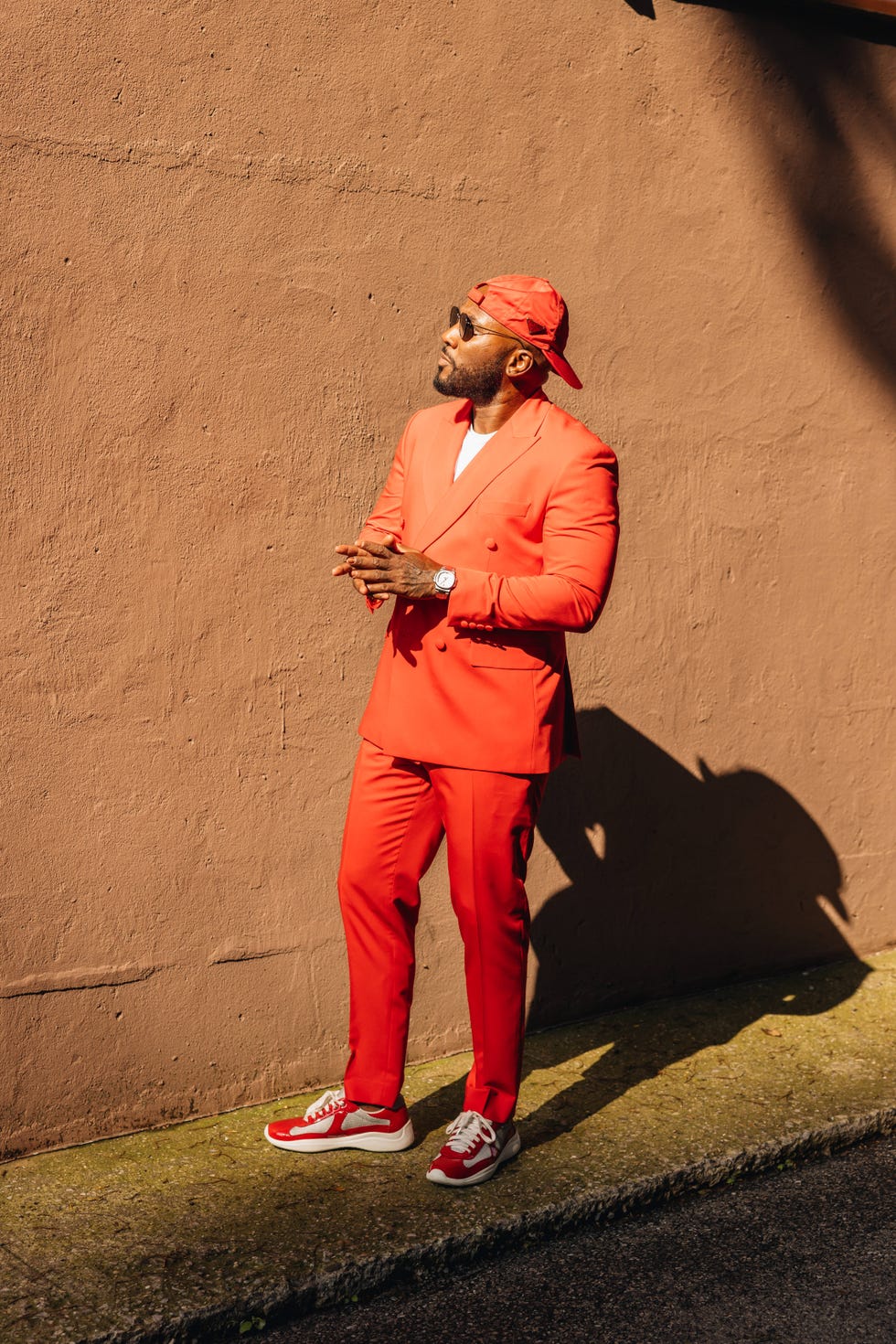
What do you think about the state of rap today?
Honestly, I think it's confusing because rap culture is leadership, and depending on what level of leadership or what your purpose is in this, are you helping the culture or are you taking away from it? Don't get me wrong, I'm not saying that I'm perfect, and I haven't contributed to trapping or dying or things like that, but that was my reality. I only spoke on what I knew. I know better now, so I can't speak on the same things, but I feel as a whole, as a culture, we have to protect this art form at all costs because it's the only thing that we have as a culture. We don't own the NBA. We don't own the NFL. We don't own a soccer league. We don't own tech companies. This is our thing, so we have to protect it. I just hope that the statesmen realize that if we don't protect this natural resource, we might put it in a place where it's not as valued people would like it to be.
When did you first become interested in clothing and style?
I was a hustler, man. I was a superstar at the gas station on the corner. I was always a fly guy. I used to hustle for clothes. Even when I was younger, when I was living in Hawaii and Japan, if you ever read my book, I used to shoplift or whatever I had to do to get best dressed every year because that was who I was. Clothing represents how you want to be perceived. I always dressed how I wanted people to see me and how I saw myself. I've been into clothing since I can remember. Fashion wasn't something that I knew until maybe the last two decades. We would just buy whatever was hot. But fashion is a different thing. It's almost like you're dressing to match your personality, so that takes a different type of designer, whether it's a street designer, whether it's a high-end designer. I've always been very serious about how I come across with my clothing. That's a big thing for me.
Fit Four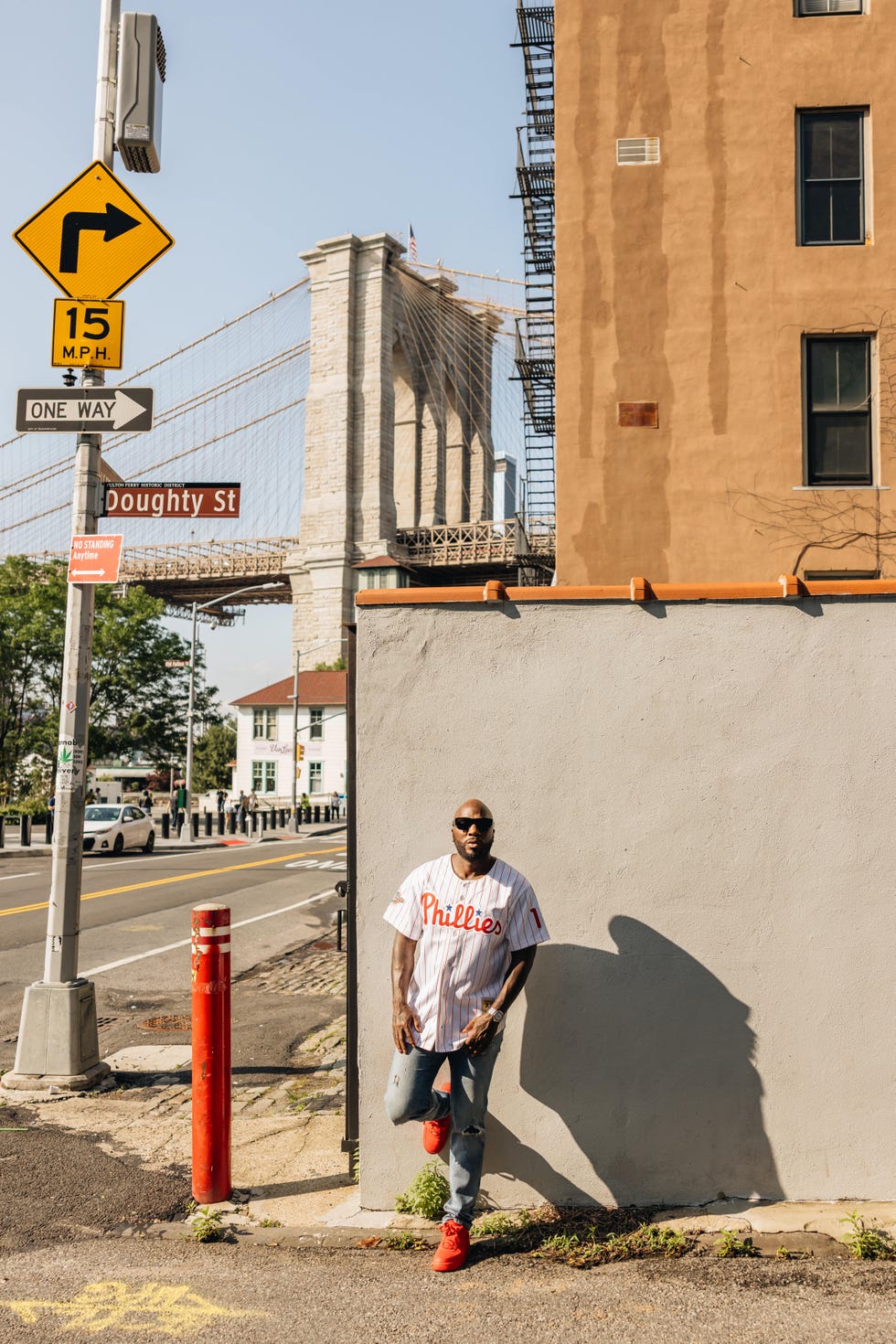
Can you remember your first expensive clothing purchase?
I remember one year for Freaknik, I went to Phipps Plaza and I bought this Iceberg set. I don't know if you know, back then Iceberg was crazy expensive. I paid almost $800 for a T-shirt, another $1,200 for some jeans.
That's a lot of money in dollars then, and today's dollars also.
It was basically a T-shirt with Goofy on it, and some jeans with Goofy around the pockets. It wasn't over the top fashion-wise, but the name back then was a big deal so I got a lot of props for it when I wore it to the club. Now, have I spent more than that? Absolutely. But that's the first time I remember spending real money on stuff.
What is your most recent clothing purchase?
It's weird because I don't really waste money on clothes anymore. I try to buy things that I really like. I don't really go shopping just to buy a bunch of stuff. If I need a pair of Chelsea boots, I already had my eye on a pair of Chelsea boots for the last three weeks, and I know I want these. I would say the last thing I bought would be some black designer suits that were made from some guys from my city. Nyoni Couture, Miguel Wilson, Hideoki Bespoke, and Carl Ulysses. But these are suit makers that I've been supporting for years that keep me fresh.
Fit Five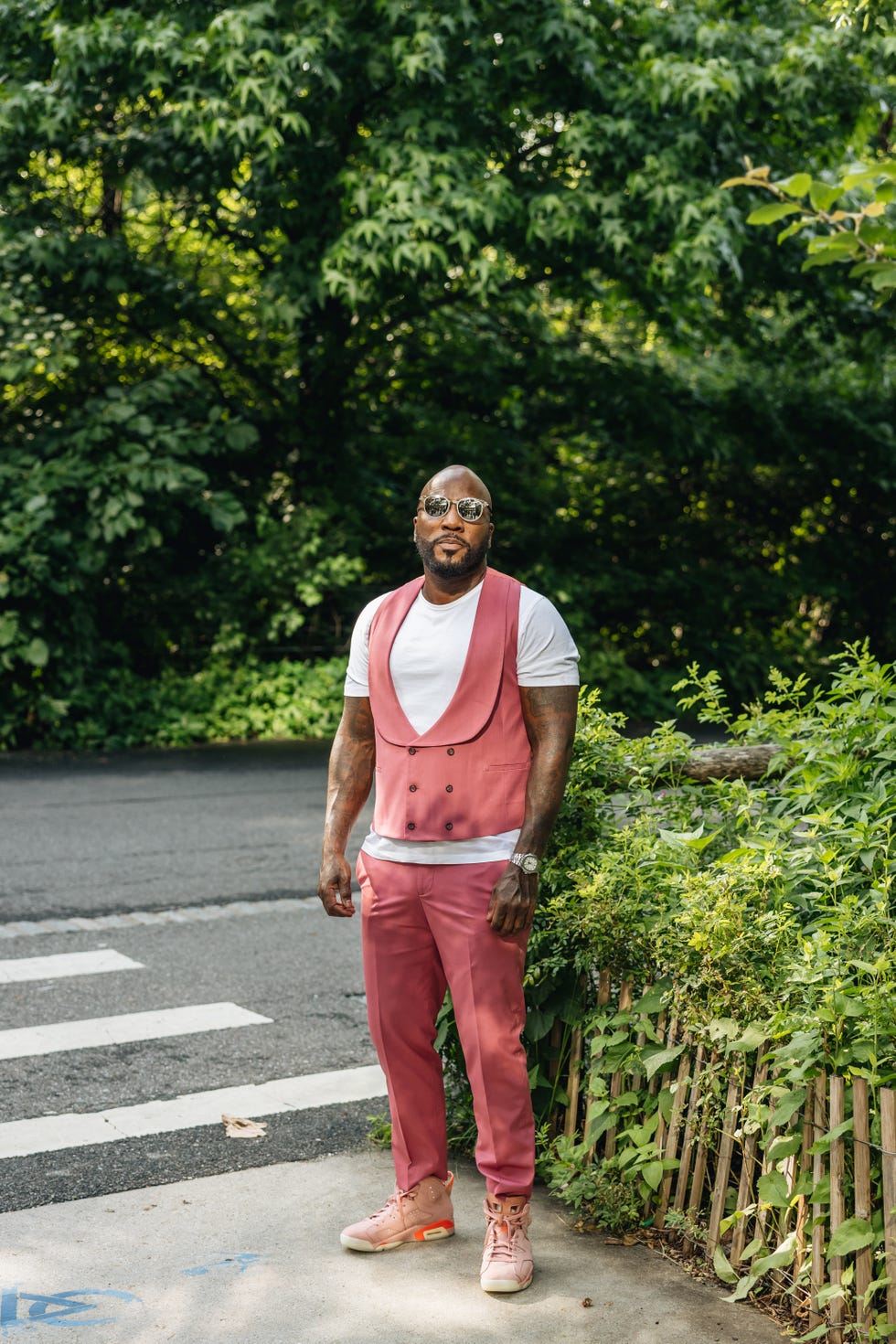
What are three non-negotiable albums you think everyone should listen to?
Tupac, All Eyez on Me. Maxwell, Urban Hang Suite. Sade, Love Deluxe. Those are three of the most well-produced albums ever.
If you had to wear one outfit for the rest of your life, what would it consist of?
Probably a Nike or a Lululemon or an On sweatsuit. I'm a sweatsuit fanatic.
What shoes would you wear?
I'ma keep it a buck with you, man, I'm a Hoka fan. I like to be comfortable. Or a pair of Air Force Ones.
esquire



